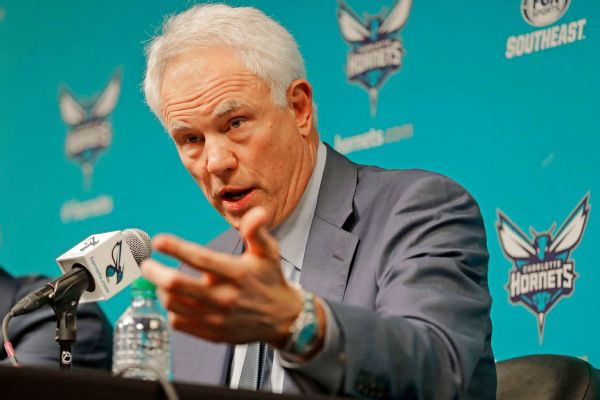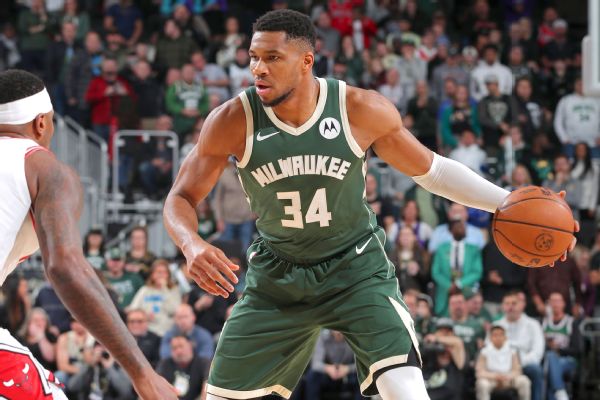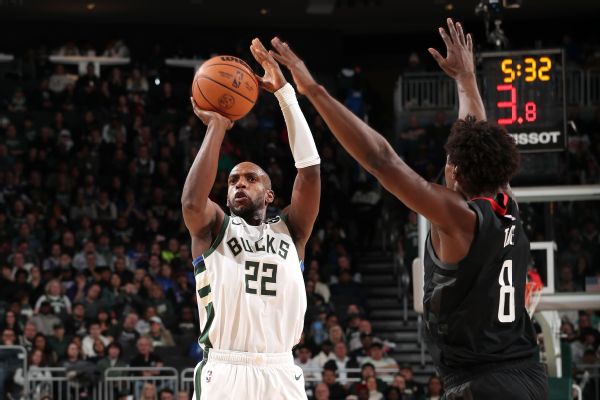CHARLOTTE, N.C. — – The Charlotte Hornets have already made one major move sending starting guard Terry Rozier to the Miami Heat and there’s a good chance they aren’t done wheeling and dealing before the Feb. 8 trade deadline.
The Hornets (10-31) are looking at an eighth straight season of failing to reach the postseason, the longest current drought in the NBA. And Hornets president of basketball operations and general manager Mitch Kupchak is well aware that it’s time to turn an eye toward the future and begin collecting draft assets.
“I can’t discount the fact that we’re a team that is trying to build something that can sustain something going forward, and … we will look for opportunities,” Kupchak said of the potential for more trades. “And if there is something out there we will look to do it. It’s as simple as that.”
So Rozier may be the first domino to fall.
The Hornets received a protected 2027 first-round pick from the Heat and 37-year-old Kyle Lowry — who they are hoping to move before the deadline — in exchange for Rozier, who was averaging a career-best 23.2 points per game on 46% shooting.
Miles Bridges and the often-injured Gordon Hayward, veterans on expiring contracts who’ll become unrestricted free agents after the season, are logical candidates to be moved. While the Hornets own their Bird rights, it makes sense the team will be open to moving both as they look to add more draft picks.
When asked specifically about Bridges and Hayward, Kupchak said “when your record is like our record, nobody is untradable.”
Well, maybe not everyone.
LaMelo Ball, who signed a five-year, $260 million max contract this past offseason, and Brandon Miller, the No. 2 overall pick in last year’s draft, aren’t going anywhere. Kupchak views them as franchise building blocks.
He also said there may be a handful of players the team might like to keep around, although he wouldn’t specify which ones. The team signed P.J. Washington to a four-year, $46.5 million contract extension this past offseason.
Kupchak stopped short of saying the Rozier trade signaled a “rebuild,” a word general managers tend to avoid because of the negative connotations involved.
“A rebuild is when you start with a bunch of veterans and a team that is not going anywhere and you decide to scrap it all and start from scratch. But clearly we are further down the road from that,” Kupchak said. “So I don’t know what the word would be, but I would not use the word rebuild.”
Still, it’s fairly clear the Hornets roster will not look the same come mid-February and they are looking to build for the future.
Rozier had two years left on his current contract, while Lowry is on an expiring deal — giving the Hornets added salary cap room this summer.
“That money will be freed up and it is always good to be flexible financially,” Kupchak said. “It will help us in the next couple of weeks to plan for this summer and beyond. … And the pick itself has incredible potential for upside. But an asset that valuable can also become something you can put into a trade and make a deal. So yes, the financial part of it was a part of it, but getting the pick was the most important part.”
As for Lowry, who turns 38 in March, there’s a good chance he may never play a minute for the Hornets.
Kupchak suggested the team will take a wait-and-see approach with Lowry before the trade deadline, an indication they will do everything they can to move him before offering a buyout.
“It may be that we wait to see what happens out of respect to him and what he’s accomplished in this league,” Kupchak said. “Maybe we wait to see and have the trade deadline pass rather than have him relocate and start something that may or may not take place. So I think (not playing him) is probably what we will do, but I don’t know for sure. But that seems to make the most sense.”


